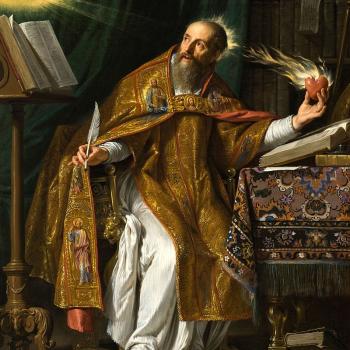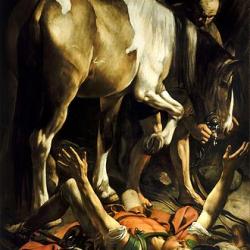Our World is Chock Full of Mysteries.
Mysterious (mist·ris), a. [f. L. mysterium MYSTERY1 + OUS. Cf. F. mystérieux.] 1. Full of or fraught with mystery; wrapt in mystery; hidden from human knowledge or understanding; impossible or difficult to explain, solve, or discover; of obscure origin, nature, or purpose.
-Simon Winchester, The Professor and the Madman.
There are mysteries of science such as Mind Controlling Parasites, Radio Active Boy Scouts and the question of whether the earth is indeed FLAT.
There are mysterious creatures and beings such as Ghosts, the Nephilim Werewolves, Aliens and Bigfoot.
There are mysteries of History such as who killed JFK, who built the Pyramids and who was the Mad Gasser of Mattoon?
Someone might explain these mysteries by blaming a vast conspiracy by the U.S. government. Or giving the credit to aliens or demons because It’s Always Aliens or Demons.
As faithful Catholics we should stay away from these things and stick to reading the bible, the catechism and praying the rosary, right?
Well if God made the world, and it’s his, we have the right to explore it. God has given us the gifts of reason and faith to aid us in looking at and solving the mysteries we have around us.
“There are more things in Heaven and Earth, Horatio, than are dreamt of in your philosophy.”
― William Shakespeare, Hamlet
He has also given us

to aid us in this quest. On long car rides I would put JAMW on so my wife and I could listen to it. It’s always fascinating, encouraging, enlightening, and sometimes challenging. Super star Catholic apologist Jimmy Akin (of Catholic Answers) and his co-conspirator Domenico Bettinelli (whom I once attended a bible study with) explore the weird, the strange, and the unusual in this unique and utterly Catholic podcast from SQPN. They look at ancient mysteries, folk tales, urban legends, crimes, conspiracies, and the supernatural from the twin perspectives of faith and reason.

In his first ever interview about the show, Jimmy graciously let the Catholic Bard know the secrets of the Mysterious World podcast. The day this is posted the MW podcast will be about a 1971 (the year I was born) event that exposed some of the darkest secrets of the FBI and changed the history of the bureau forever! WHEW!
Also check out Jimmy Akin’s Mysterious Poem
CB: What is the Mysterious History of Mysterious World? Where did it begin?
JA: About 15 years ago, I was taking a road trip around the desert Southwest, and I visited Roswell, New Mexico. I started thinking about writing a book called Jimmy Akin’s Book of the Weird, which would look at things like UFOs, Bigfoot, and the Kennedy Assassination and evaluate them from the perspectives of faith and reason. Because of various factors at the time, that didn’t come together, but it was the core concept of what became Mysterious World.
By 2018, I had gotten into podcasting and been invited to join the board of the StarQuest network. The network was at a turning point at the time, and we had some big decisions to make if we were going to continue podcasting. Among other things, we needed ideas for new podcasts that would be popular and that would allow us to fulfill our mission of evangelizing the culture. I mentioned the idea of doing one that looked at mysteries from the faith and reason perspectives. The board was very enthusiastic, and so we set to work.
CB: Have you always had an interest in mysterious things?
JA: I’m curious about almost everything, so yes, I’ve always been interested in mysteries of all sorts. I grew up in the 1970s, when there numerous documentaries on Bigfoot, UFOs, and things like that, including programs like Leonard Nimoy’s In Search Of. Then, in the 1990s, my late wife—Renee—and I would watch Robert Stack’s Unsolved Mysteries, and later I watched The X-Files, which started soon after she passed.
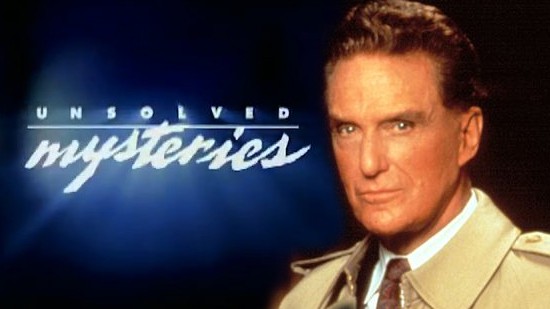
CB: How long did it take to develop the podcast?
JA: I think it was about 2 or 3 months from the time I pitched the idea to when we did our first episode, in August of 2018.
CB: Tell us of your background in being a detective and any interesting stories related to a past case you have worked on?
JA: Not a lot of people know that I used to be a private detective in real life. I didn’t do it for long, but one summer when I was in grad school—the summer my wife passed—I worked as a private detective in Arkansas, so I have caught and arrested people. That’s always a tense experience that gets your adrenaline pumping, because you don’t know how the subject will react. You don’t know if they are carrying a gun or if they will fight. I’ve been in situations where my partner and I would have to tag-team to subdue a subject. If he’d get out of my grasp, my partner would grab his shirt and hold on long enough for me to tackle him and wrestle him to the ground. It could take a while to unwind after a situation like that!
One guy who didn’t fight was a man who had modified a trench coat so that he could shoplift items from a store. He’d knocked the bottoms out of the pockets, so anything he concealed went to the bottom of the coat, and it could hold much more. When we arrested him, he was indignant. He had pretensions of being an author and claimed to be stealing as part of his research process. I like to think we helped him research how the criminal justice system works.
CB: Why so many shows about aliens?
JA: There aren’t as many as you might think. Out of our first 100 episodes, only 10-15 were devoted to alien-related topics, and it’s a popular subject. I think carefully about the ratios of the topics we cover. I want a balance between the different natural and supernatural topics, so the show has something for everyone.
CB: Might Aliens or Time Travelers listen to the show?
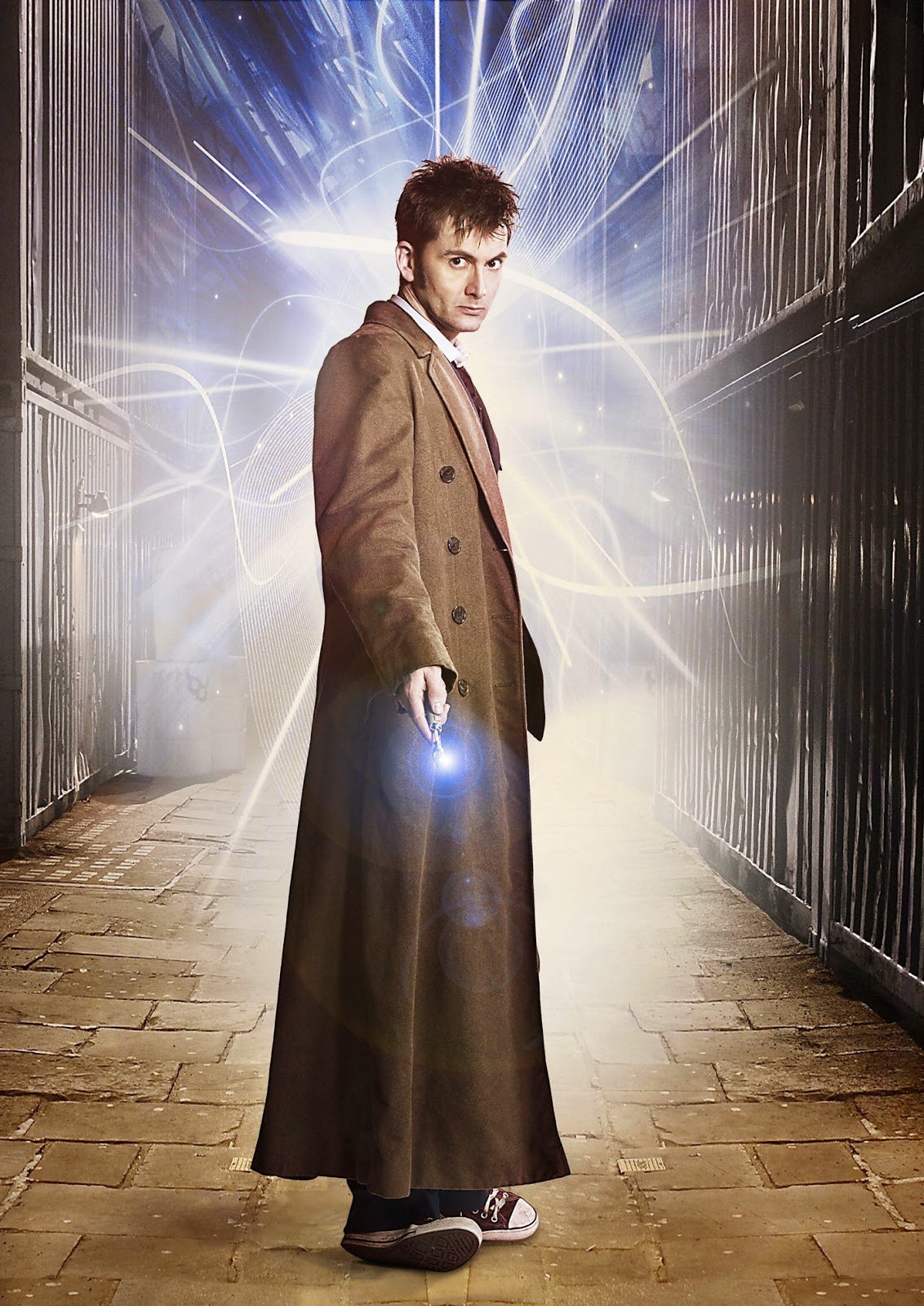
JA: I certainly won’t stop them!
CB: How do you go about doing research on a given topic? What is the method of your research?
JA: I’m almost always drawing on background knowledge for part of the episode—just stuff I’ve learned over the years. Sometimes and entire episode will come from background knowledge, though most of the time I end up reading one or more books, as well as several articles. I also make a point of researching multiple views on the mystery, so I can present and evaluate a range of theories about it, not just my own ideas.
CB: How long do you take to research a topic?
JA: I’m usually reading about 1-2 months ahead of when we record an episode.
CB: What obstacles is there in any research?
JA: With a new episode coming out every Friday, time is the big one. Another is finding enough quality information on a subject. There are many mysteries I’d like to do except for the fact I haven’t been able to find enough good information on them. Also, the format of the information can be a challenge. It may not be available in English. Or it may not be available in electronic form (I’m dyslexic—so yes, Jimmy Akin has a learning disability—and I read much better from a screen than from a printed page). Journal articles also can be a problem, since many are behind expensive paywalls.
CB: What has been the hardest show to research?
JA: It’s hard to say. The ones that are hardest to get information on end up getting deferred to the future, because I don’t want to put out an episode unless I can get enough quality information. For all the episodes that we’ve done, I was eventually able to get the kind of information I needed. Some of the more challenging episodes included hypnosis, because so much information about that topic is junk, and the ancient Egyptian black magic harem conspiracy, since it’s a 3,000-year-old crime and only partial records survive.
CB: What show was the most fun show to do research on?
JA: The ones that are the most fun for me personally are the ones I already know a lot about. That means I’m intrigued enough by the topic that I’ve already done a lot of reading and thinking about it, and I just have to write what I already know and then fact-check it to make sure I’m not misremembering. Most of these episodes are on biblical subjects or periods of history I know a lot about—like Roman or Egyptian or Cold War history.

CB: How does being a catholic apologist shape the show you do?
JA: It informs everything I do. That’s why every episode has a segment devoted to looking at the mystery from the perspective of the Catholic faith.
CB: How might the show be different given a different world view or faith tradition?
JA: Mysterious World is different from other shows on mysterious topics because of the way it is rooted in the Catholic faith.
Many shows don’t have the Catholic faith’s commitment to truth. Some aren’t about trying to get to the truth about a mystery; they’re just interested in generating a sense of mystery and wonder, and that can lead to them not being concerned about facts. Those shows are really about feelings rather than facts. I’m all for experiencing the mystery of God’s creation, but I’m also interested in using the God-given gift of reason to try to figure out the mysteries and find out what’s actually true. That means we take an evidence-based rather than just a wonder-based approach on the show.
Also, as St. Thomas Aquinas emphasized, all truth is God’s truth. We shouldn’t dismiss an idea just because it isn’t familiar to us. If we were a Fundamentalist show, we might dismiss every mystery as being due to demons, but that wasn’t Aquinas’s approach. He recognized that God made an amazing world, and that there are many things in it we don’t understand, but that doesn’t make every mystery demonic. Aquinas recognized that we need to use reason to sort the good from the bad, and the Church celebrates him for taking ideas seriously, no matter who proposed them, and then clarifying them in light of the Christian faith.
Finally, I take Christ’s teaching on love very seriously, and I strive to apply the Golden Rule to everyone on the show. I wouldn’t want my views treated with disrespect, and so I try to treat every view we consider on the show with respect and charity, even in the process of showing why it’s false.
CB: What podcast has gotten the most feedback?
JA: I haven’t counted the number of comments, but our most popular episode so far is on Skinwalker Ranch, a mysterious site in Utah where multiple types of high strangeness have been reported.

CB: What is the overall response to the program?
JA: Overall, it’s been extremely positive! Many people write in to compliment it, and I’m especially pleased that people often propose their own ideas and arguments about the mysteries we cover. That shows they’re intellectually engaging with the topics we cover, which I really like to see.
I’ve also been really pleased to see how many people say that they’d never heard of a topic before, only to find the episode we did on it absolutely fascinating. That’s one of our most common pieces of feedback. I wouldn’t do an episode if I didn’t think the topic would be interesting to people.
One sign of the response to the show is how it has grown. We’ve been doing the show for just under 2 years now, and a typical episode today has more than 20,000 listeners.
CB: What is some of the Good feedback that you have had?
JA: One of the things I’ve been surprised by is how many parents write in to tell us that their children and teenagers listen to the program. A lot of families listen to it together.
I was not expecting the show to strike such a chord with younger listeners, and it’s extremely gratifying to hear from parents how their children are intellectually engaging with their faith and putting into practice the critical thinking skills we use on the show.
When we realized we had young people listening, it only strengthened our commitment to keep things family-friendly and to warn parents when we might need to discuss something that wouldn’t be appropriate for all ages, like when dealing with occasional true crime mysteries.
CB: How about some of the negative feedback?
JA: On the Internet, you have to expect that you’ll occasionally get comments from trolls, and we get a bit of that, especially on YouTube. But I’ve been surprised at how little of that there is.
More often, people write to express a different point of view, but I don’t count that as negative feedback. They’re usually very polite and simply expressing a difference of opinion, which is fine! It shows that the podcast is stimulating thought!
CB: Who is your biggest audience for the podcast? Catholics? Non-Catholics? Non-Religious?
JA: We haven’t done an audience survey, but I’m pretty sure that most of our audience is Catholic. However, we definitely have non-Catholics listening and even supporting the show as patrons. That shows how much value they see in it, despite whatever differences the may have, and that’s very gratifying.
We often hear from Catholic and other Christian listeners how they are able to share the podcast with their non-believing friends because of the way we deliver intellectually engaging content and treat other viewpoints with respect, even when we don’t agree.
CB: Any people related to the show you produced? Relative of person you talked about or author of a book you promoted?
JA: We did an episode on a man named John Hendrix, who lived in the early 1900s and had visions that led to him being known as “the Tennessee Prophet.” When I was researching the episode, Myra Mansfield—author of The Story of John Hendrix—was very helpful and had kind words to say after she heard the episode.
CB: Your involved in many other SQPN shows, why Sci-Fi?
JA: I grew up in the space age and remember when we had astronauts walking on the moon, so I’ve been a sci-fi fan since I was a child.
CB: I reminded of something you posted on FB. You said…
All fiction is really science fiction.
I mean, despite its apparent realism, the political thriller House of Cards is really an alternate universe story where someone other than John Major became prime minister after Margaret Thatcher, right?
Every single work of fiction takes place in a universe where history unfolded in a different way that it did in this one (sometimes with different laws of nature as well).
Even apparently realistic stories are about alternate universes with alternate histories.
So . . . everyone’s a science fiction fan whether they realize it or not.
So, what is your favorite Sci-Fi Show?
JA: Different shows have good and bad points. Some favorites include Star Trek (especially Deep Space 9), Doctor Who, Babylon 5, Stargate: SG-1, and Battlestar Galactica.
If I had to pick one overall, it would probably be Star Trek: Deep Space 9.
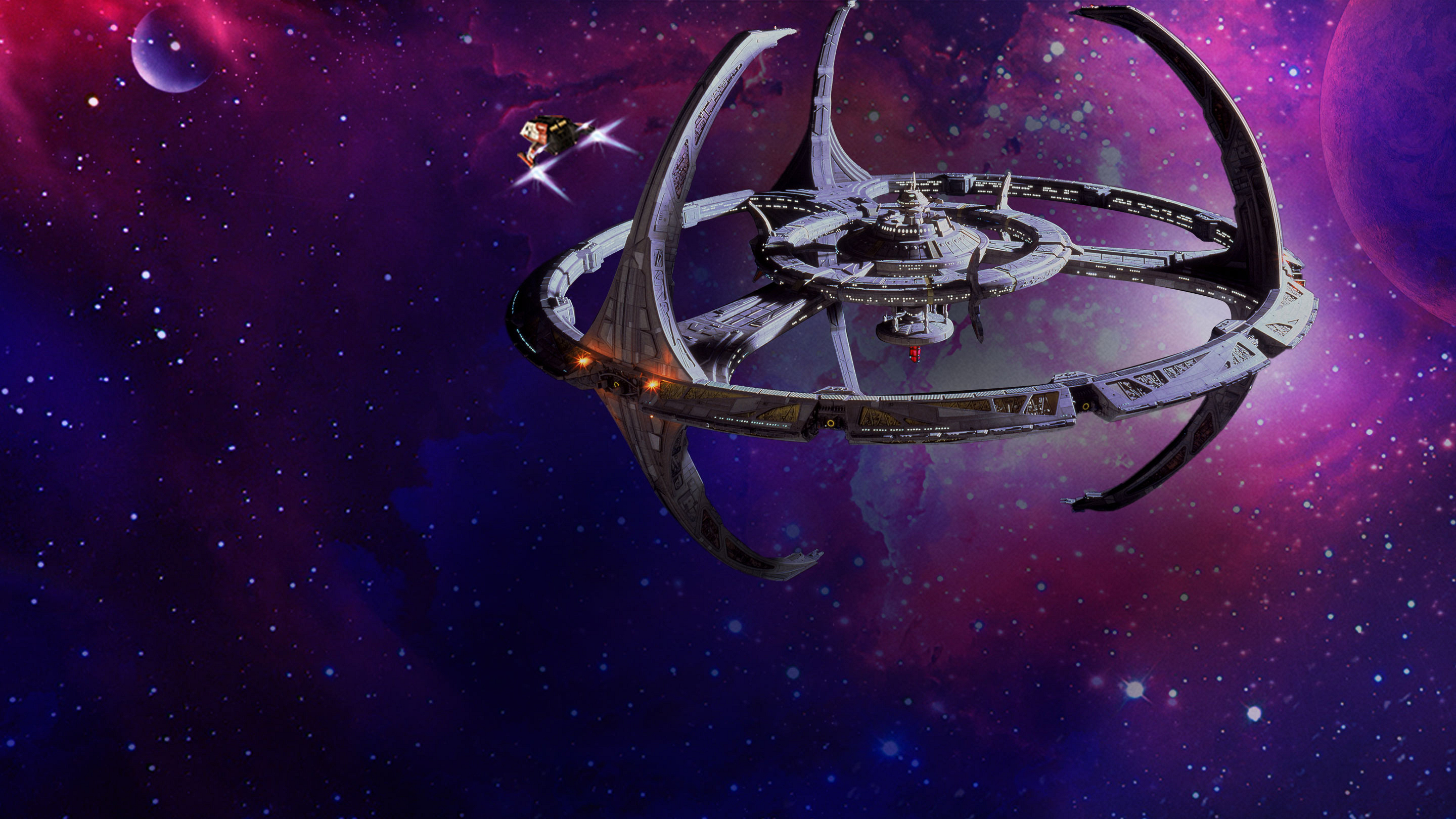
CB: How is Sci-Fi Compatible with Catholic Faith?
JA: Why wouldn’t it be? It’s like any other genre of literature. It can be done in a way that’s either compatible or incompatible with the Faith, depending on who’s writing.
Humans have always had imaginative fiction—that is, stories that involve more than just the challenges we face in ordinary life. In fact, imaginative fiction is older than realistic fiction. In the old days, people recited The Epic of Gilgamesh or the Iliad and the Odyssey. Science-fiction is just a recent manifestation of the imaginative streak that God built into us.
CB: What is your favorite Sci-Fi Book or Story?
JA: I don’t have a single favorite. However, longtime favorite sci-fi authors include Larry Niven and Jerry Pournelle.
Some Free Fiction Online Larry Niven (8) Jerry Pournelle (15) JP was Catholic.
CB: I noticed that you mentioned a particular cartoon series on your FB page, and seeing this is a show about mysteries, could you say something about Scooby Doo Mystery Inc.?
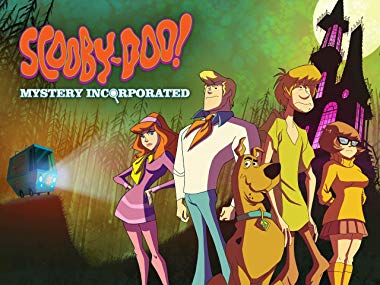
JA: Scooby Doo: Mystery Incorporated is the best and most imaginative installment of the Scooby-Doo franchise so far. I love big stories, and this show tells a single story that spans 52 episodes. It also has strong character development arcs, good humor, and—of course—mysteries.
CB: Your show has a lot of patrons, how do patrons help your show.?
CA: Any chance we will see a Mysterious World book at any point?
JA: Absolutely! A book was the genesis of the idea. I could see a series of books over time.
CA: What are some of the topics you are looking forward to doing some day?
JA: I have a spreadsheet with more than 1,000 topic ideas for future episodes, so it’s hard to narrow that down. However, some that I look forward to doing include the Star of Bethlehem, the D. B. Cooper case, the Ark of the Covenant, the CIA’s MK-ULTRA project, the plot to assassinate Hitler, the real history of the Illuminati, and the book of Revelation.
CB: Any other mysterious things you want to add?
JA: To quote the philosopher Ludwig Wittgenstein, “That which we cannot speak of, we must pass over in silence.”
CB: Thanks again Jimmy for participating in this interview. I look forward to many more podcasts of MW and the other things you do on CA and elsewhere.
I love Jimmy Akin and his readers, because they embody the sort of fun speculations that made medieval disputations so cool:
Reader: Jimmy, if teleportation is ever invented, then would a teleported Eucharist still be the body of Christ?
Jimmy Akin: Depends on the type of teleportation. If it’s non-destructive teleportation then definitely yes. If it’s destructive teleportation then presumably no.
****
Small-minded folk who dismiss this as “angels on pinheads” stuff only show who the real pinheads are. This kind of healthy “what if” cogitation is not only where good science fiction comes from, but good science, art, philosophy and theology. It is in Wonder that all our intellectual growth begins. Keep it up, Jimmy and fans!
Mark Shea,(January 31, 2019) Facebook






